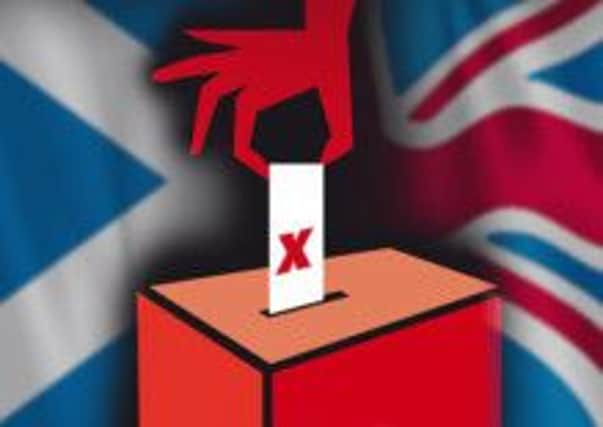John Curtice: Credibility of devolution is key


Within the last fortnight the Conservatives have unveiled their plans for giving the Scottish Parliament more powers, while we have been told the three unionist parties might reach agreement on the process by which some version or other of more devolution would be delivered.
Today’s poll indicates why these manoeuvres by the No side are necessary. Only around a half of No voters (49 per cent) think that more devolution will actually be delivered in the event of a No vote (although this is well up on the 38 per cent figure in last month’s poll).
Advertisement
Hide AdAdvertisement
Hide AdThe No side apparently still has plenty of work to do to convince its own voters, let alone anyone else, that promises will be honoured.
Not that all No voters are by any means keen to see more devolution delivered. Only 48 per cent of No voters back the idea.
Moreover, the bulk (77 per cent) of those that do want a more powerful Scottish Parliament go on to say that they will vote No regardless of whether they think more devolution would happen or not.
But that still leaves a soft underbelly of No supporters who want more devolution and who say they would no longer vote No if they thought it was not going to happen. In particular 11 per cent of such No voters say they would switch to voting Yes, while 13 per cent do not know what they would do.
If all those who say they would switch to Yes were to do so, that alone would add four points to the Yes tally. With the Yes vote currently running at 45 per cent, just five points short of the winning post, that is four points the No side cannot afford to lose. The referendum race is too close for that – and that is why Better Together will want to redouble its efforts to convince voters that more devolution really will happen.
Indeed, it looks as though the No side could do with generating greater enthusiasm for its campaign more generally amongst its supporters. No supporters are clearly less active and involved in the referendum campaign.
Amongst No supporters, 55 per cent say that they have had lots of conversations about the referendum with friends and family in recent weeks. That sounds quite impressive until one realises that no less than 71 per cent of Yes supporters have been talking a lot about the referendum.
Yes supporters are evidently keen to discuss and convey what they consider to be the good tidings of independence.
Advertisement
Hide AdAdvertisement
Hide AdMany a No supporter, in contrast, wishes perhaps that the referendum was not happening in the first place, while some of them at least are less than wholly convinced of their own side’s messages. That said, the Yes side is still not succeeding in winning the argument on the central issue of the campaign – the economy.
Few are willing to vote Yes if they do not think that independence would be good for Scotland’s economy. And at the moment pessimists still outnumber optimists. Enthusiasm many not be enough to override brass tacks.
- John Curtice is professor of politics at Strathclyde University